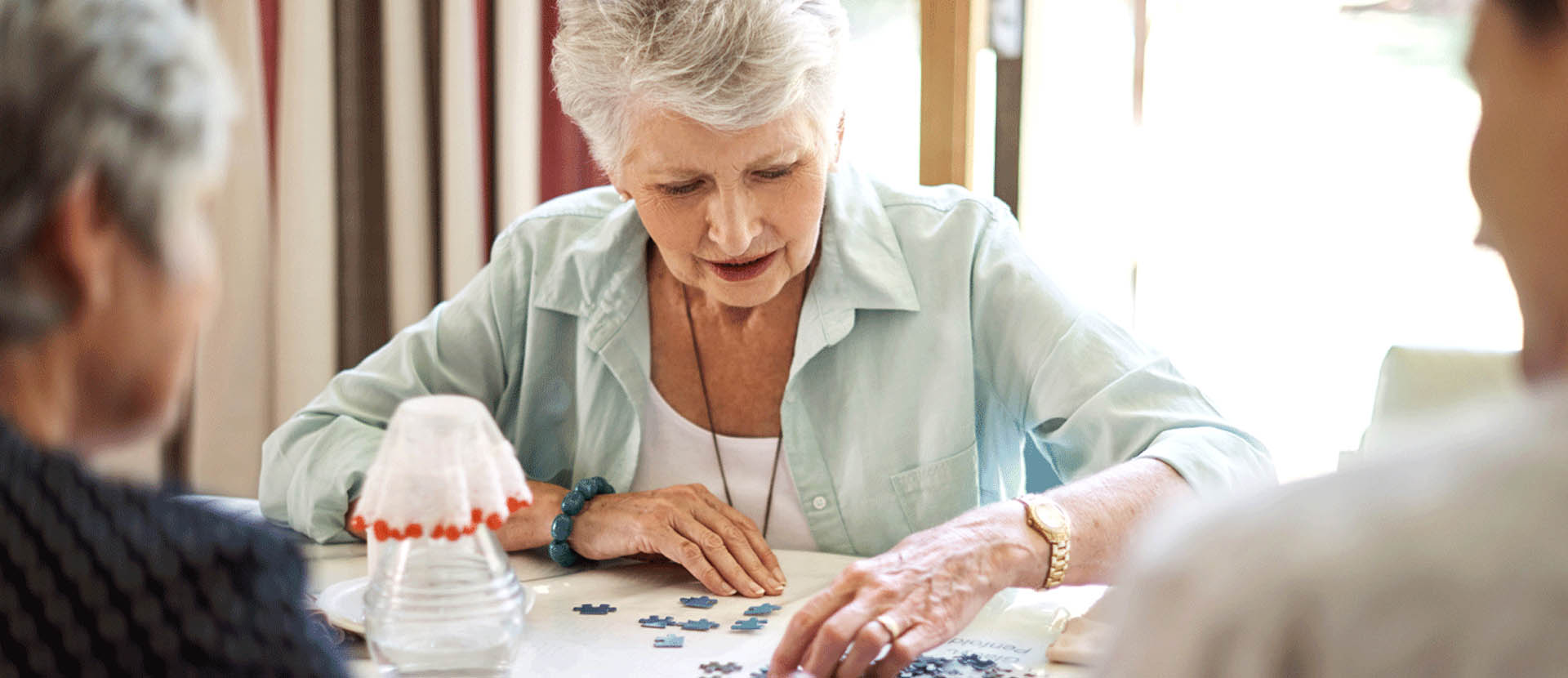Activities for Dementia

Together with dementia specialists, Helping Hands, we’ve listed some activity ideas to help you connect with those suffering from dementia.
If your loved one is living with dementia, you may have noticed that as their condition progresses, their interests have changed. Or perhaps they are experiencing a loss of confidence, which prevents them from trying new things or getting out and about. Helping Hands share five activities you might like to encourage them to try...
A Life Story Book is a reminiscence tool to support those living with dementia. It is also an activity you can enjoy doing together.
One of the most significant symptoms of dementia is memory loss and a change in memory. As dementia progresses, someone living with it can experience difficulty communicating things about themselves. A Life Story Book is designed to trigger happy memories of their life and help them to recognise aspects about themselves, including their hobbies and favourite place to visit.
Alternatively, dig out some old photo albums and take some time to look back together. Looking through photos is an easy way to unlock memories and help someone living with dementia to share stories and key milestones from their life. Whether it's a wedding album, childhood photos, or moments you've captured together, make a cup of tea and enjoy a trip down memory lane.
2. Listen to Music
Music can be an incredibly useful tool when supporting someone living with dementia. It can help to calm someone, change their mood, connect with others and even reduce the feelings of isolation often associated with dementia.
Someone living with dementia loses their most recent memories first, and they remember their oldest memories most strongly. Music can be used to unlock memories and help people living with dementia relive fond memories. To start, you could try playing your loved one a song that once meant a lot to them. This could be the music they had their first dance to, a favourite song from their youth, or one that might remind them of a special occasion.
It is important to remember to watch their reaction as the music plays. If they appear to be uncomfortable or agitated, turn the music off. It could be down to something as simple as the wrong song choice, or perhaps they are not in the right frame of mind, so try it again at a later time with another genre of music, or at a different time of day.
3. Cooking
Your loved one may not have the confidence and mobility to cook up a storm in the kitchen like they used to, but taking the time to prepare and cook a meal together can be incredibly beneficial. Supporting your loved one to cook is a great tool for confidence-building; doing an activity that they may have once enjoyed independently but with a reassuring hand.
Cooking together is also a fantastic way to encourage healthy eating with a fun and engaging task - pick the fresh ingredients together and make something delicious.
Baking is also a wonderful way to create new memories. Why not dig out their favourite recipe book and share some quality time in the kitchen!
4. Chair Exercises
Staying active and engaging in regular exercise is important for both physical and mental wellbeing. As your loved one's dementia progresses, you may notice that they are less inclined to venture out for a walk, or they may feel unsteady on their feet. Chair-based exercises are a fantastic way to encourage regular exercise, with the safety and stability of their favourite chair.
Try out the NHS sitting exercises together - you could even pop on your loved one's favourite song and finish the exercises with a gentle dance.
5. Social Events and Groups
Staying socially active is an important part of living well with dementia, it is not uncommon for people living with dementia to experience feelings of isolation and loneliness. As well as being there to support your loved one, you can also help them to maintain a healthy and active social life.
You could accompany your loved one to social gatherings or help them set up a phone call with a friend. Alternatively, charities, such as Alzheimer's Society, organise dementia cafes to provide a safe and welcoming space for people affected by dementia to stay connected.
Helping Hands
With over 30 years' experience providing individually tailored home care across England and Wales, Helping Hands offer expert support at home, ranging from 30-minute visits up to full-time live-in care. And if you need fast-response support, Helping Hands can often begin your bespoke care plan within 24 hours of your initial enquiry.
For more information, please call 0330 818 5964 or visit www.helpinghands.co.uk





